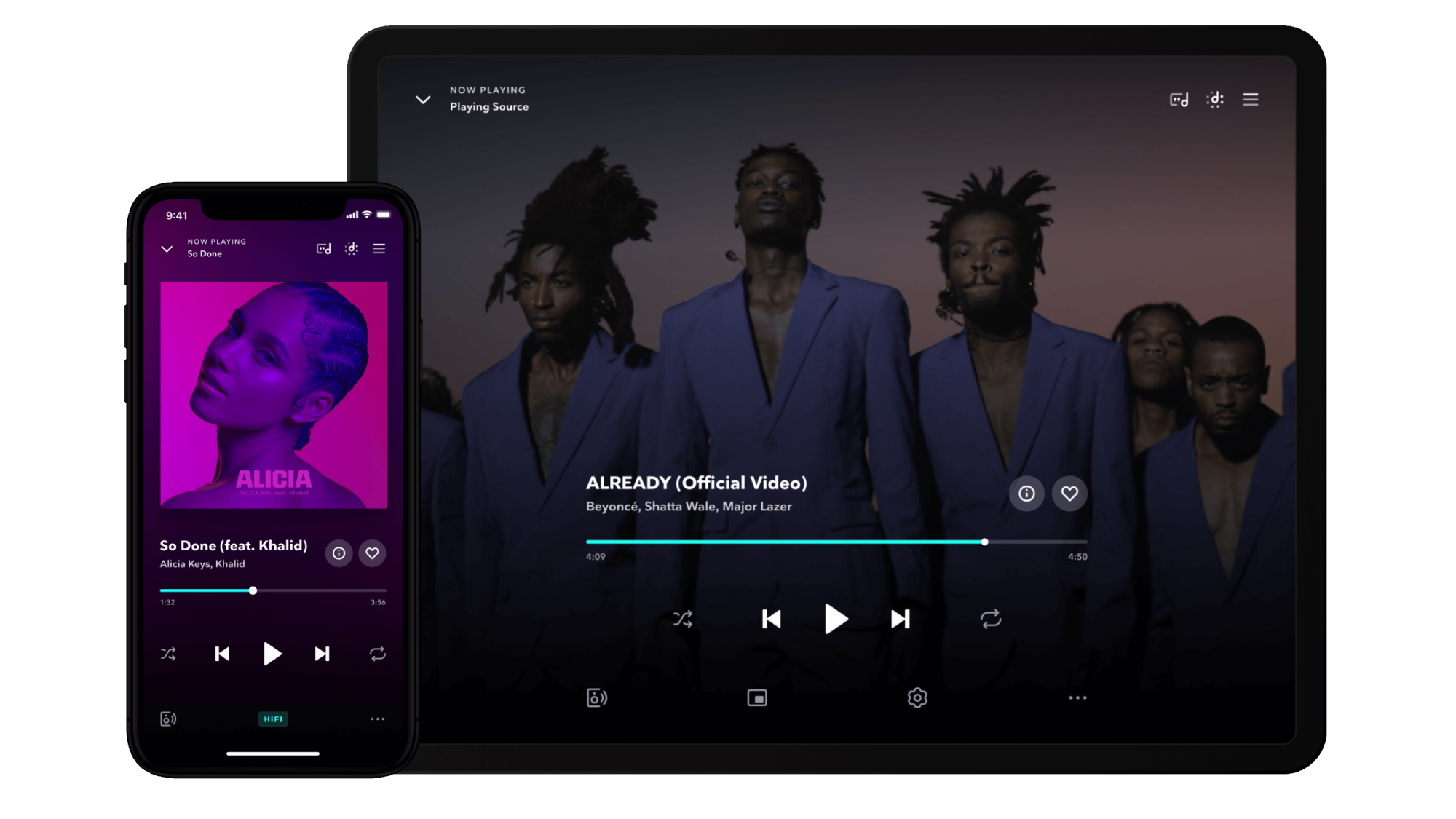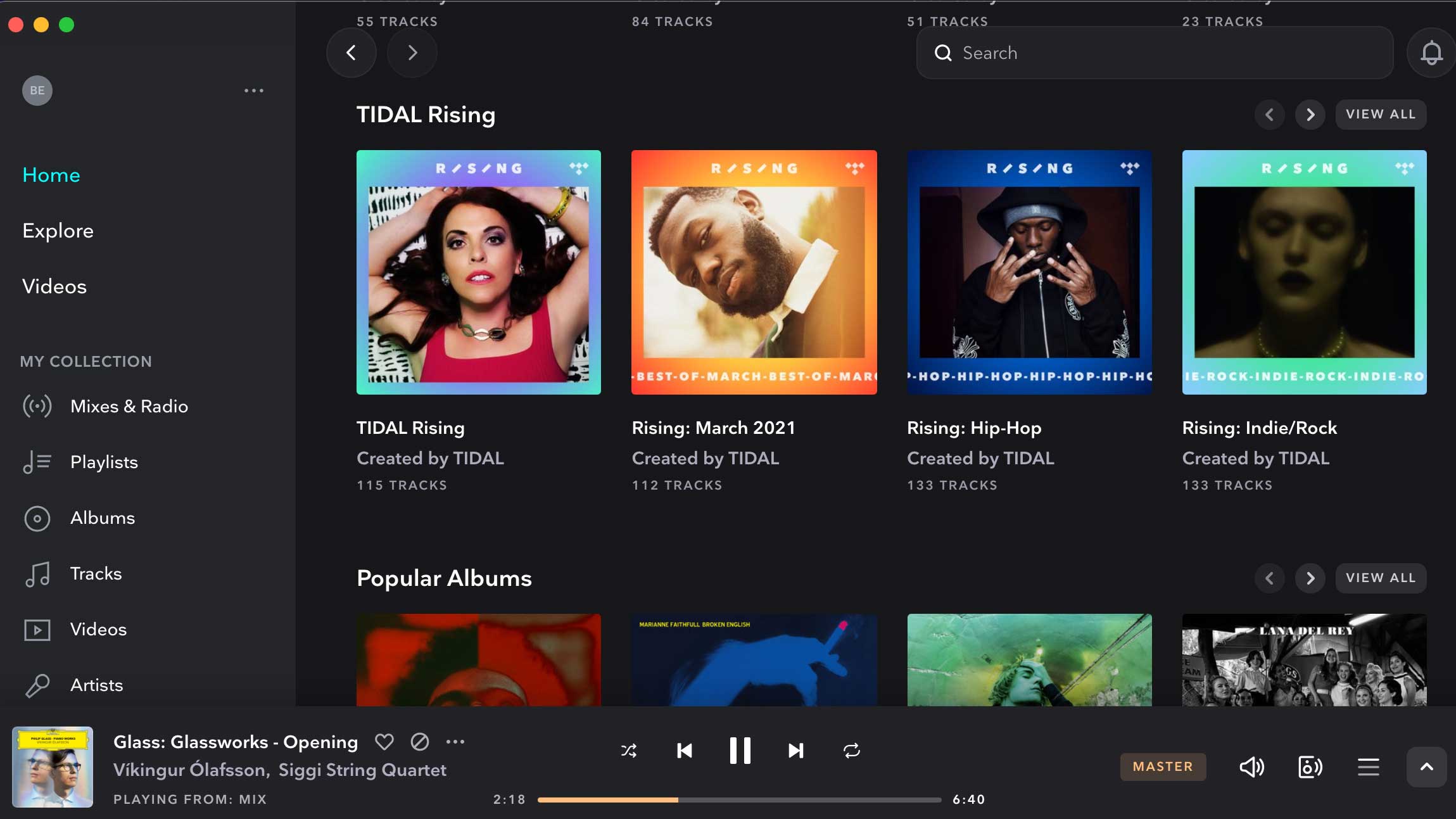Tidal price: how much does it cost and today's best Tidal deals
What price will you need to pay for high fidelity audio...

Sign up for breaking news, reviews, opinion, top tech deals, and more.
You are now subscribed
Your newsletter sign-up was successful
Tidal is one of the many music streaming services now on the market. But with its high-quality audio and strong payouts for artists, it is a special option for high fidelity audio fans... but what will that unique aspect cost you?
- Want to check out Tidal? Head to the site to grab a free trial
Like some of its competitors, Tidal keeps the options open with one cheaper plan and then a pricier option for those looking to reap the full benefits. Which option is better for you will depend both on how much you're looking to spend and what you want to get from your music streaming (and also where our Tidal HiFI vs Tidal HiFi Plus guide will prove invaluable).
Below we've broken down everything you need to know about Tidal prices, available deals and all of the ways you can save money when signing up for this popular platform.
Tidal price
How much you'll end up paying for Tidal depends completely on which plan you choose to go with. There are two available options right now - Tidal HiFi or Tidal HiFi Plus.
Tidal's more affordable plan will currently cost you £9.99/$9.99/AU$11.99 a month. That puts this in line with a lot of other streaming platforms for price right now.
However, while this is a great value way to stream, it does lack a lot of the features that make Tidal stand out, mostly around audio quality and benefits to artists.
You can reduce that price, either by applying as a student for a 50% discount or by signing up for a family plan (more on that below).
If you know you want to get access to every part of what makes Tidal stand out, its the HiFi Plus plan that you'll want to go for. While it does carry a steep rise in price, it's well worth it for fans of great quality audio - the main feature we praised in our Tidal review.
Currently HiFi Plus comes at a price of £19.99/$19.99/AU$23.99. That is significantly more expensive than the HiFi plan but does offer a lot more features and is in line with higher-quality streaming plans from other brands.
Tidal deals and free trial availability
Unfortunately, Tidal doesn't seem to be big on its discounts. However, there are a couple of ways that you can save on the price of a new plan.
Tidal doesn't do yearly subscriptions so you will always be signing up for a month at a time. While that will be at full price for most people, students can cut 50% off the price of either plan.
First responders and military in the US can also get a discount when signing up for either of Tidal's plans. If you're in a family, you can also choose to sign up for a family plan to get a discount. A family plan is actually one of the cheapest ways to get Tidal, offering the use of Tidal on six accounts. This costs less than signing up for two separate Tidal plans so is the best option as long as you have at least two people looking to sign up.
Even if you know you want to be signed up to Tidal for a while, you can get a 30-day free trial when you first sign up to the service. This is available across all plans and countries, and it works with the student, family and military discounts.
Tidal is also free with a number of services in the US. If you're on a Sprint Unlimited Plus Plan for example, you can get Tidal for free. T-Mobile customers can get a 90-day free trial and you can get a free 3-month subscription when you connect your Mercedes Me and Tidal accounts.

How the Tidal price compares to other music streaming services
- Spotify
Spotify is currently the most popular music streaming platform, and therefore will likely be the main one you're comparing. It carries a similar number of songs to Tidal.
Currently Spotify will cost you $9.99 / £9.99 / AU$11.99 a month which is identical to the pricing of Tidal's HiFi plan. Spotify doesn't have a premium plan but also like Tidal, it includes discounts for students, families and uniquely, couples.
- Apple Music
Apple Music is Tidal's closest competitor in terms of style, number of songs available, similar features and attitude to paying artists. It also matches both Spotify and Tidal when it comes to price.
Apple Music will cost you $9.99 / $9.99 / AU$11.99 per month. Like its competitors, Apple Music offers discounts for both students and those signing up as a whole family.
- Amazon Music
Amazon Music carries a similar number of songs to Tidal, but more importantly, it uses a similar higher level of audio quality to Tidal.
Amazon Music's plan costs $7.99 / £7.99 / AU$6.99 per month if you’re a Prime member – or $9.99 / £9.99 / AU$11.99 if you don’t have Prime.
Considering it is offering high-quality audio like Tidal, this is a great way to make the most of your speakers without the cost of Tidal's HiFi Plus plan.
- Deezer
Deezer, like Amazon and Tidal, offers two plans - one for normal streaming and one for HiFi quality audio.
Go for the cheaper plan and you'll pay the same as all of the other standard plans - $9.99 / £9.99 / AU$11.99 per month. However, Deezer also has a HiFi option costing $14.99 / £14.99 / AU$14.99 per month.
Like its competitors, there are a number of available discounts for Deezer including family plans, student discounts and a saving for signing up for an annual plan.
Sign up for breaking news, reviews, opinion, top tech deals, and more.

Alex is a journalist who has written extensively about all things broadband, SIMs and phone contracts, as well as scouring the internet to land you the best prices on the very latest in gadgets and tech. Whether that be with the latest iPhones and Android handsets, breaking down how broadband works or revealing the cheapest SIM plans, he's in the know, and will help you land a bargain.